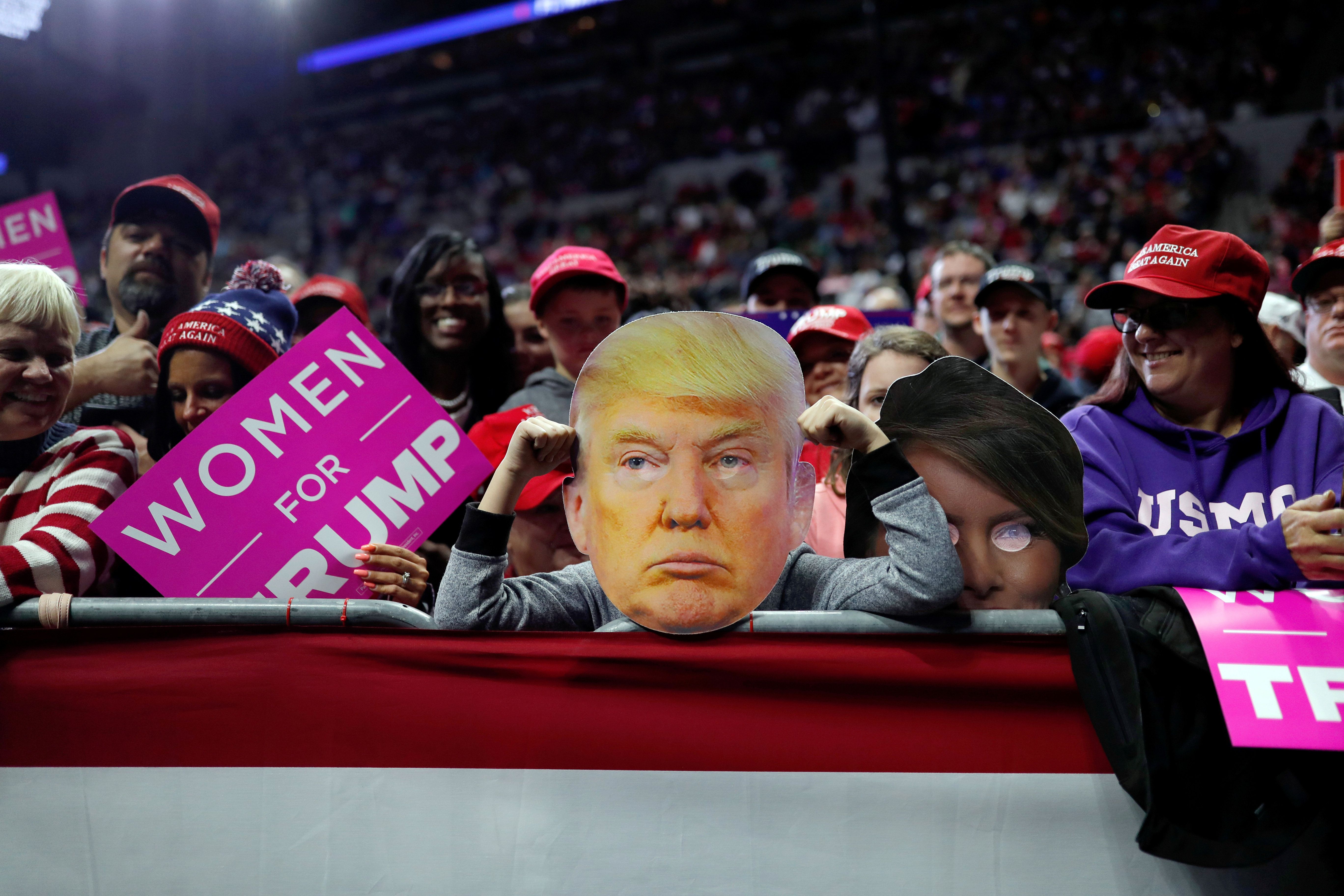November 07, 2018
Yesterday, Americans turned out in droves to vote in midterm elections, returning control of the House of Representatives to the Democrats for the first time since 2010 and leaving Republicans with a narrow majority in the Senate. The vote was widely seen as a referendum on President Trump’s first two years in office.
Well, the verdict is in. Democrats have picked up at least 26 seats in the House – more than the 23 needed to take back a majority there. The Republicans won at least 2 seats in the Senate, which they will continue to control, but the loss of the lower house is a major setback. As Republicans retreat to lick their wounds and Democrats prepare to use their restored House majority to check the president’s agenda, here are the three big questions they now face.
Run to the center, or cultivate the fringe? With the midterms in the bag, both parties will now start to position for 2020. In doing so, Democrats must choose between striving to pick up disaffected moderates or embracing the activist wing of the party. While the activists may have energized turnout this week, it was suburban moderates who helped to expand the map for Democrats. In 2016, Trump won independent voters by four points. Last night, independents broke for Democrats by a margin of 13 percentage points. The choice of which group to cultivate in 2020 is a fundamental question about the Democratic Party’s future.
Republicans in Congress face a similar dilemma: facing an electoral setback, do they double down on Trump’s America First agenda and divisive brand of identify politics? Or are major setbacks in purple states viewed as an inducement to try to win back the middle? It may depend on whether the election ends up being perceived as a referendum on Trump’s governing style or on the specific policies backed by Republicans in Congress. The question of who controls the post-election narrative, the White House or Capitol Hill, will also be important in determining how the results are interpreted.
Who is our standard bearer? Democrats have until the beginning of the next Congress in January to agree on their party’s nominee for speaker of the House, and numerous candidates are already jockeying to position for presidential bids in 2020. The Democrats’ debate over speaker will be an early indicator of whether the party will go down an establishment or more activist path.
The Republican leadership, for its part, now faces the crucial decision of whether to hew more closely to Mr. Trump or to try to extricate the party from its president. Moderates may now see good reason to resist the president’s more controversial pronouncements and policies — having achieved the objectives of passing a major tax cut and appointing two Supreme Court justices. But other Republicans will have won re-election by embracing the president, and they may elect to follow his lead instead. We will soon find out whether an establishment Republican is willing to pose either a primary or third-party challenge to President Trump in 2020.
What about Trump? If the question for Republicans is whether to run from Trump, for Democrats, it’s how aggressively to pursue him. As fellow Signalista Alex Kliment noted yesterday, the House’s return to Democratic control gives them broad subpoena and investigatory authority, and it’s likely to result in a slew of investigations into Trump and his family. The results of the Mueller investigation will only add fuel to that fire, depending on what the special counsel finds.
This all means that once the new Congress is sworn in, Democrats will have a wide array of political levers to pull to go after the president. In the extreme, Democrats could even push for impeachment – although the high bar for conviction by the Republican-controlled Senate virtually assures that any attempt to oust the president from office would fail. But that strategy isn’t risk-free: push too far and it could re-activate the Trump voters who stayed home during the midterms when it comes time to vote again in 2020.
More For You
Geoffrey Hinton, the ‘Godfather of AI,’ joins Ian Bremmer on the GZERO World podcast to talk about how the technology he helped build could transform our lives… and also threaten our very survival.
Most Popular
Think you know what's going on around the world? Here's your chance to prove it.
Reform UK leader Nigel Farage holds a post-budget conference in London, United Kingdom, on Nov. 26, 2025.
Phil Lewis/WENN
Nigel Farage, the far-right UK leader, reportedly told donors that he plans to join forces with the center-right Conservative Party ahead of the next election. Right-wing groups in other parts of Western Europe have largely avoided making such an alliance.
© 2025 GZERO Media. All Rights Reserved | A Eurasia Group media company.
